Bespoken Word: Mental health and mountain biking
Guy Kesteven reflects on all the ways being out on the trails can do us a world of good
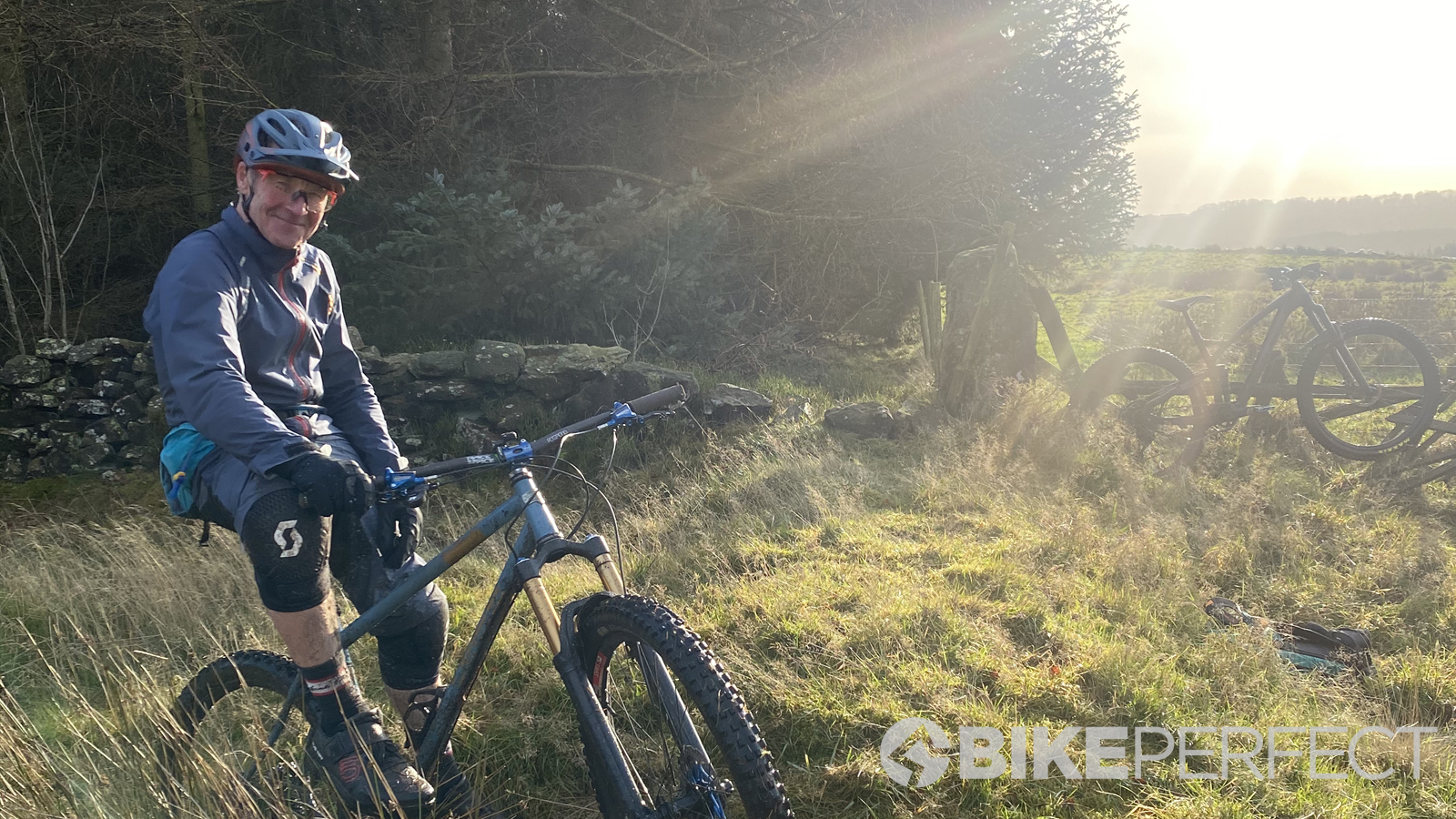
We all know that a ride can really sort our heads out and bring us home buzzing and grinning however bad we were feeling when we went out. But why is riding absolutely amazing for your mental health, and how can we avoid the potential psych problems of having too much of a good thing?
The reason riding can be so great for your head is that it’s actually a whole package of different physical, mental, developmental, primal, social and environmental positives. The more you understand each one, the more you can reap the benefits too. I personally know how much of a mental tightrope using riding as your medication can be, so what are the potential issues of pinning your psychological health on your pinning?
Physical
It’s been proven countless times that exercise of any sort unlocks a very beneficial medicine cabinet in our bodies. Raising your respiration and heart rate releases endorphins, a natural high that spreads a smile across your face. Start pushing harder or scaring yourself a bit, and adrenaline and noradrenaline kick in. These are residues of ancient ‘fight or flight’ survival responses, which still form a powerful cocktail of awareness-enhancing meds that can spread grins and open eyes even wider when they start coursing through the body. The adrenal gland also triggers the release of cortisol and other natural steroids, increasing blood sugar levels through the metabolism of stored glycogen, proteins and fat.
In other words, the body's chemical response to exercise can make us feel more alert, elated, excited and energized. The comedown is also more likely to make us feel rested and ready to sleep, which is key when insomnia is often a massive, problem-multiplying issue.
Riding can bring a load of other mental health benefits too. If you’re struggling to find wins elsewhere in your life, mastering a bit of trail, getting fitter and faster on climbs and/or losing weight can be a huge positive in terms of self-esteem, self-image and general positivity that’s been documented time and again by people talking or blogging about how good mountain biking has been for them.
Learning how to fix a part of your bike, helping to build or maintain a trail, or overcoming a riding issue — mechanical, navigational or climatic — can also be a huge boost for your confidence and self-worth. Buying new kit as a reward for progress can be a very useful and natural tool for reinforcing goal setting too.
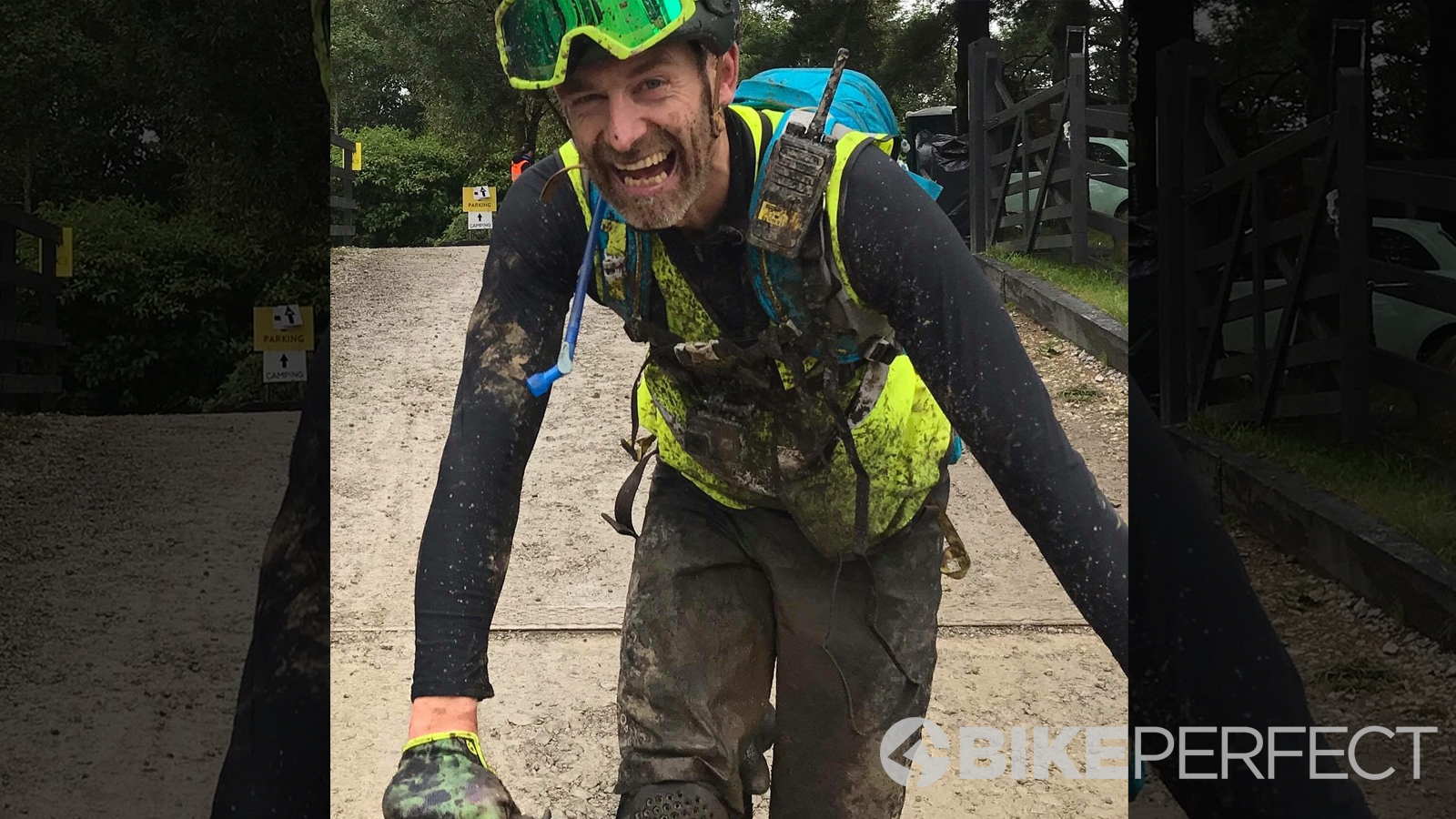
Mental
While these benefits come from pretty much any form of exercise, riding off-road adds another level of mental stimulation and distraction that can be really beneficial. I’ll be honest and admit that I thought ‘mindfulness’ was all about sitting cross-legged, listening to whale songs and trying to find the ‘empty trash’ command on your cerebral desktop through controlled breathing. Turns out though that anything that takes your mind off things that aren’t happening right now qualifies as mindfulness. In other words, having trees flashing past your bar ends, fighting for grip on climbs and corners, or trying to gauge the right speed to survive or send the next section might be more effective than lighting up joss sticks and cueing up ‘Now that’s what I call humpback 37’. And you don’t even have to hit a double black trail to outrun the ‘black dog’ either. Some of us find solace in the perfect pedalling rhythm or pumping a flow trail. I remember chatting to Andy Heading, a multiple winner of the 1,400 mile, often -40 degrees Iditabike Impossible bike race across Alaska, and him saying that when you have to eat 7,000 calories a day and get into your sleeping bag within minutes to stop hypothermia setting in on the rare occasions you stop, that really puts mortgage payments into perspective.
The sheer variety and stimulation offered by riding off-road compared to on-road also mean we can switch attention to positives rather than getting dragged into negatives, too. So even if you struggled to ride up that hill today, maybe you nailed that descent section for the first time ever or vice versa. To put that into personal perspective I’ve been really struggling to find my mojo while road riding (basically because there’s nowhere to hide that I’m not as fast as I want to be) and just the thought of holding drop bars brings on negative, depressing thoughts. If I can take those drop bars onto dirt though, then my mood switches instantly because I’m in an environment where I feel more confident and I’m happier with how competitive I can be. Even on a mixed ride, I’ll still get massive mood swings depending on whether I’m ripping up singletrack or sucking wheel on the tarmac.
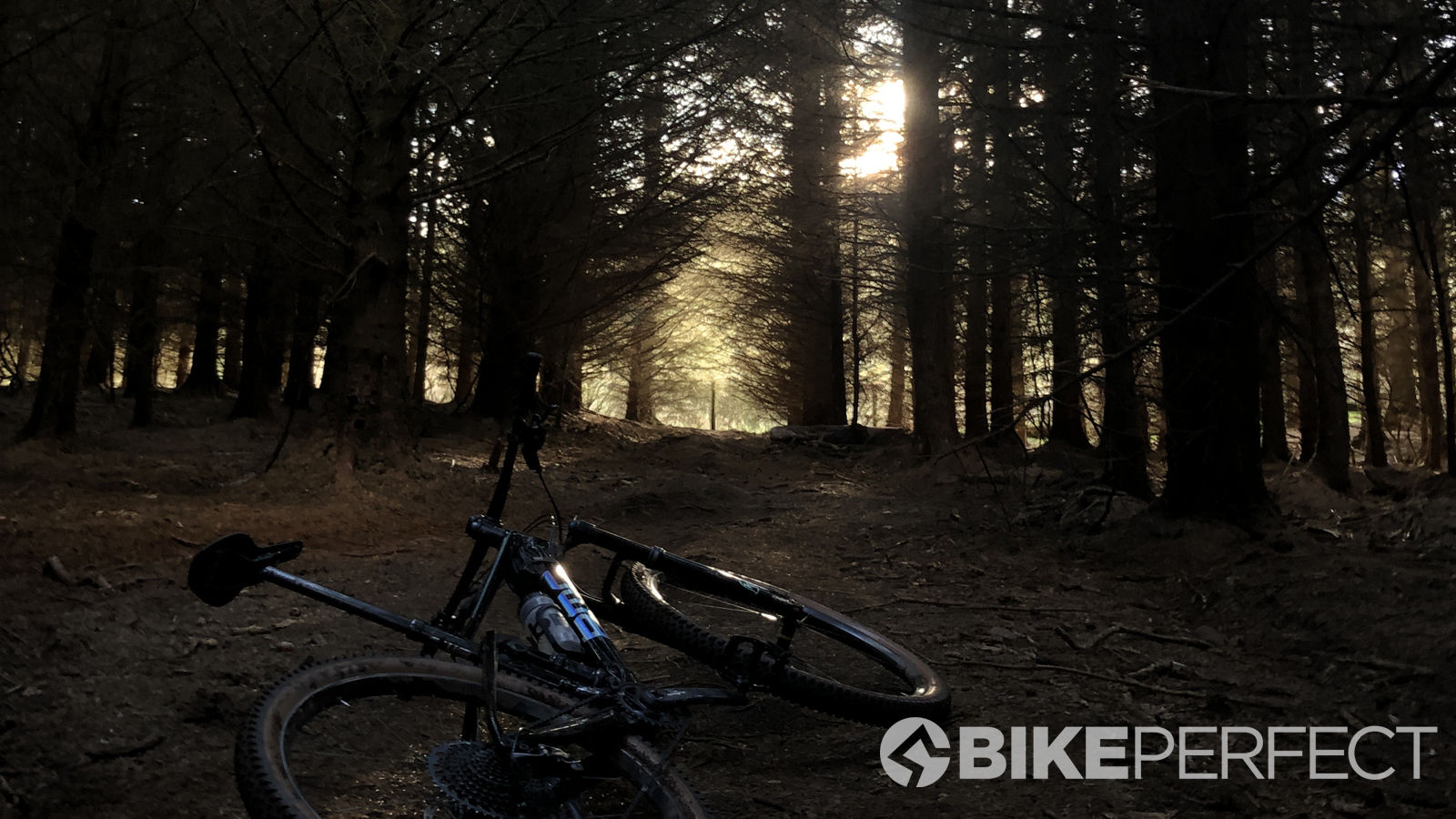
Environmental
As well as providing all sorts of distractions, riding outside — particularly in forests and hills — triggers all sorts of primal pacifiers and feel-good vibes. You can trace this way back into ‘taking the airs’ and a whole junk load of eastern philosophies, but scientific studies confirming the benefit of ‘forest bathing’ led to it being the basis of a national health plan in Japan in the 1980s. Yep, exactly when Japanese companies like Shimano, Suntour and Tange were pioneering the push for proper mountain bike components to expand the environmental reach of the new sport as much as the ‘extreme sports’ side. I mean, the original Deore even had a deer head rendered on the rear mech.
That sensation of chasing mates through the forest or mastering ridgeline trails can trigger a whole load of evolutionarily primal drives. Infamously flamboyant artist and social commentator Grayson Perry might be better known for wearing a dress and unlocking the art establishment, but in his ‘The Descent of Man’ book he also describes how he loves the predatory sensation of hunting people through the trees when he’s racing a mountain bike. Multi-gold medal facilitating behaviorist Prof Steve Peters talks about how outdoor sport can be a brilliant place to exercise the ‘inner chimp’ he bases his groundbreaking, bestselling Chimp Paradox ‘mind management book and coaching program around.
The escape provided by riding can be geographical too. Taking you out of a place or away from people that you find stressful, infuriating or depressing. That ‘happy place’ can be a mountain top worthy of Instagram adulation or just a bench on the edge of town. It really doesn’t matter as long as it’s somewhere you feel safe and grounded. The key thing is that you make the most of your moments there with a few deep breaths and some real release, rather than fussing with what filter makes the sunset look best on your phone camera.
Social
The social side of riding can be a huge mental health positive, too. Being on a bike, on the same trail as someone else instantly gives you some common ground to base conversation on and break down barriers. It’s totally free from any sort of other links to the rest of your life too, and again it’s very much in the moment as we regroup at gates or the bottom of descents to laugh, whoop or facepalm about that last section. All that adrenaline and endorphin flow is deliberately infectious, tapping into pack bonding and trust mechanisms that started forming not long after we started splitting apart as primeval protozoa.
The trailhead is a completely different social scene from normal society too. If you turn up in a fancy car with a brand new bike perched precariously on top, you’ve got no more kudos than the kid in the Corsa van with the beaten up hardcore hardtail until you’ve both hit the trail. And in few other situations might both of those people end up laughing so hard together an hour later that they become lifelong friends.
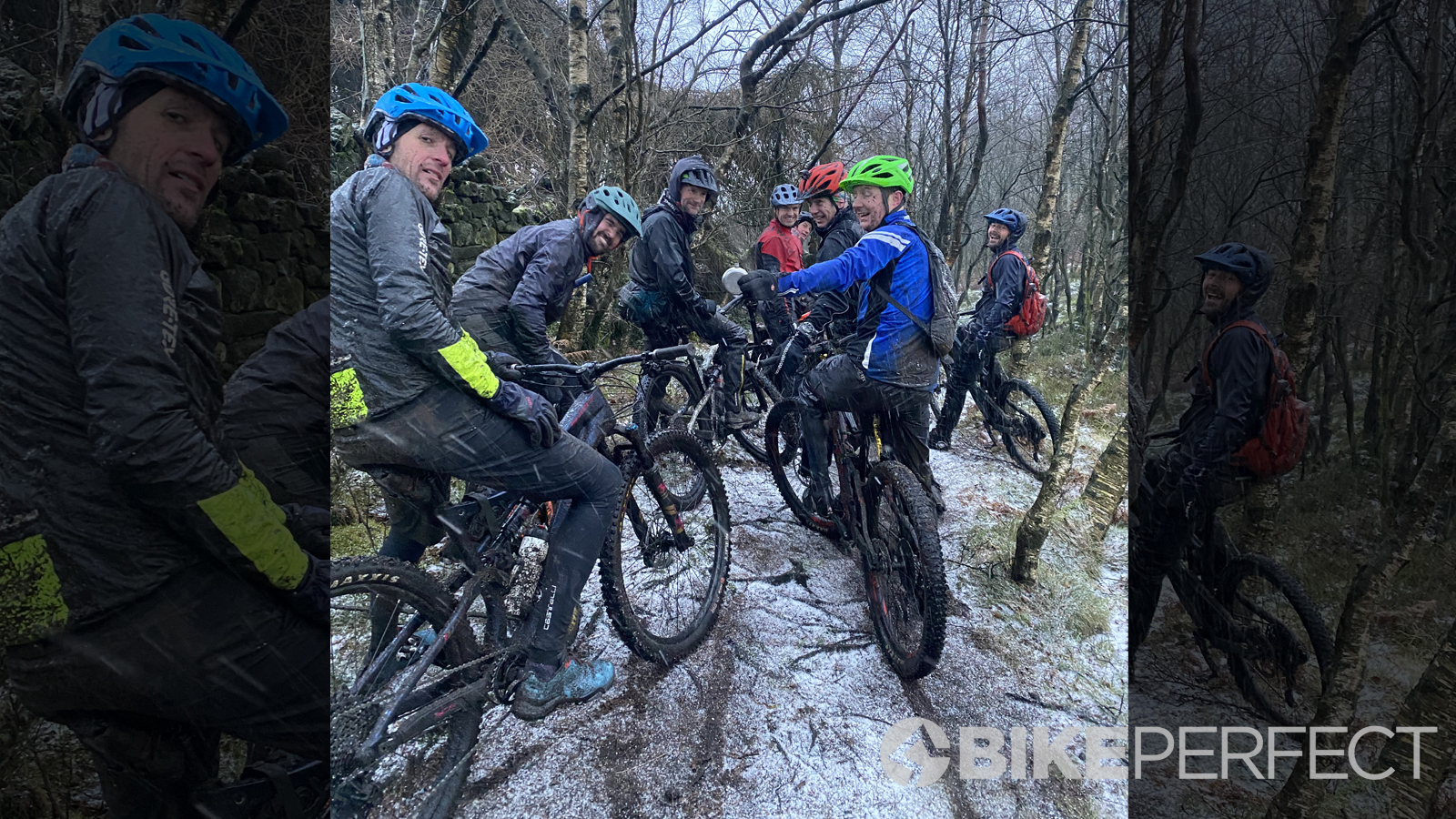
Again there are so many different types of riding groups and riders to join too. Some are super social setups where everyone takes their time, gate stops are an excuse to chat for ten minutes every time and the ride is as much as an excuse for the beers afterwards. Others — like our Thursday Night Fight Club — are murderously competitive hunting packs where every section of the ride is a race and the only banter comes from last-second brake squeals, inside line shutouts or tire buzzes from behind because talking on a climb would be treason. At the end of the ride though, we dry heave, massage our cramps or check wounds and laugh about the hard moves that have given us a reset on the rest of our lives. Whether we’re architect, full-time dad, writer, accountant, company director, craftsman, IT specialist, engineer or postman, the bonds we’ve formed from well over a decade of riding together let us know when a check up on WhatsApp after the ride, or a drop back on a climb to encourage, or just offer an ear, might mean the world. Or as one member of the gang recently put it, TNFC is as much The Needy Fathers Club as Thursday Night Fight Club.
The dark side
When all those physical, mental, developmental, primal, social and environmental effects are combined together it’s no surprise that when Developing Mountain Biking in Scotland (DMBinS) teamed up with local social care initiatives and Edinburgh Napier University to trial a 6-week mountain biking program for people with mental health issues, the results were amazingly positive. There are examples of excellent work done by TotalMTB and military veteran riders’ groups, where hitting the dirt on a bike has literally saved people from putting themselves under it.
And at this point, it would be very easy to sign this off as a totally feel-good, happy-clappy piece - after all it’s certainly more than long enough to stop here.
However I think we also need to look honestly at the potential problems that come with relying on the meds of mountain biking too much, and that’s something I’m going to do in-depth later on. The mental stresses of riding at a top-level are clearly seen in ‘failed’ careers where that badge can be totally crushing even if life by every other marker is a success. Every riding group has people who don’t turn up anymore. Maybe because circumstances have changed, but maybe because they don’t think they’re fit or skilled enough, and are holding the group back. I know that part of the excitement that I feel before a group ride is also gnawing fear about how well I’ll go compared to the others. Whether you’re a pro or behind bars for the first time, the hum of peer — or personal — pressure can be as much of the noise of trail riding as tire buzz. And in a sport where relaxed flow is the key to unlocking so much, getting tense is a surefire way to fail rather than fly. Cue a self-defeating downward spiral that reverses all those potential self-esteem, self-image and self-confidence gains.
Riding too hard, too much has real physical consequences too. The increasingly well-documented aftereffects of concussions; the bad choices made by exhausted and/or adrenalin-addicted minds that can devastate riding, relationships or work; the immune system-defeating, bone and muscle-wasting effects of cortisol overload; long-term effects of ignored injuries or just going big when you should have gone home.
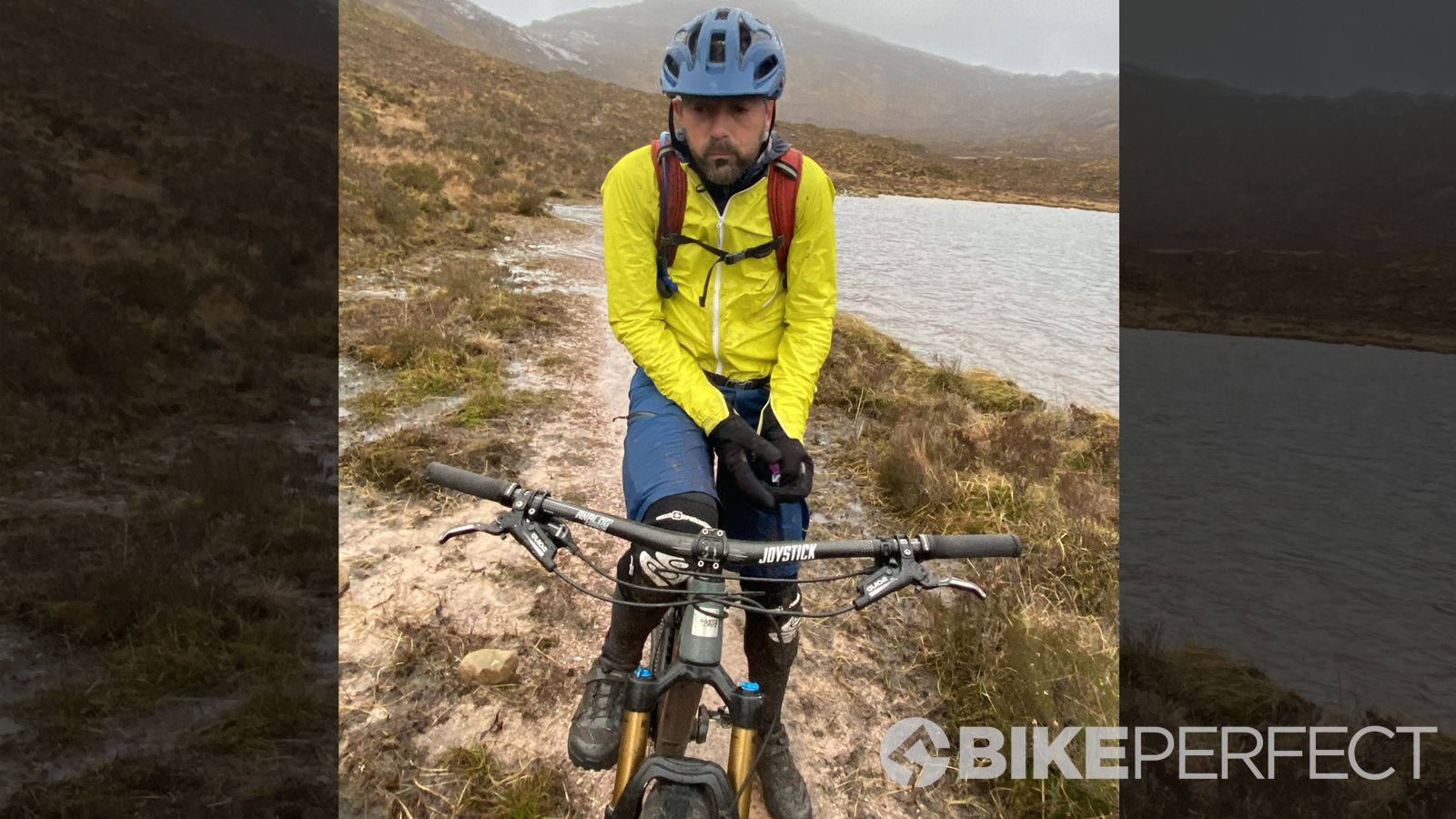
And that’s where we as mountain bikers can really make a difference. Thankfully the landscape of mental health and conversations around it is becoming far more open and healthy, but we can all play our part personally. Know when your mates are up for banter and will laugh if you twist the knife in their legs on a climb. But also realize when they’re quiet not because they’re breathing hard, or they’re missing rides because they’re struggling mentally or physically. You’ll often recognize when they’re riding at their ragged edge or worryingly pale when they still think they need to push harder, so step in and suggest they dial it back a bit.
Be the ear they need and don’t just ask if they’re OK once, ask twice and check-up afterwards too. Again I know for a fact how much all of these interventions can matter and I’ve been pulled out of some really dark places and potentially dangerous situations by a well-timed word or someone listening patiently. So next time you ride, pay a bit more attention to your pals and maybe open up a bit more yourself. If you’ve got a lapsed rider then give them a quick shout to see how they’re doing. You don’t have to be pushy or try and pull them onto a couch because mountain biking is an escape mechanism for many of us, just check in, it could make a big difference.
Don’t just limit the good vibes to your group either. A smile or a nod to anyone else on the trail can go a long long way to making them feel welcome. If you see someone struggling, encourage them and give them space, don’t bust past them on a descent just to make yourself feel superior. And if you’re struggling yourself right now then just be kind to yourself and reach out to others for help, whether that’s mates or local or national mental health groups. Because mountain biking is brilliant for your state of mind for a whole ton of reasons, but fellow mountain bikers can be even more of a help.
Useful MTB mental health links
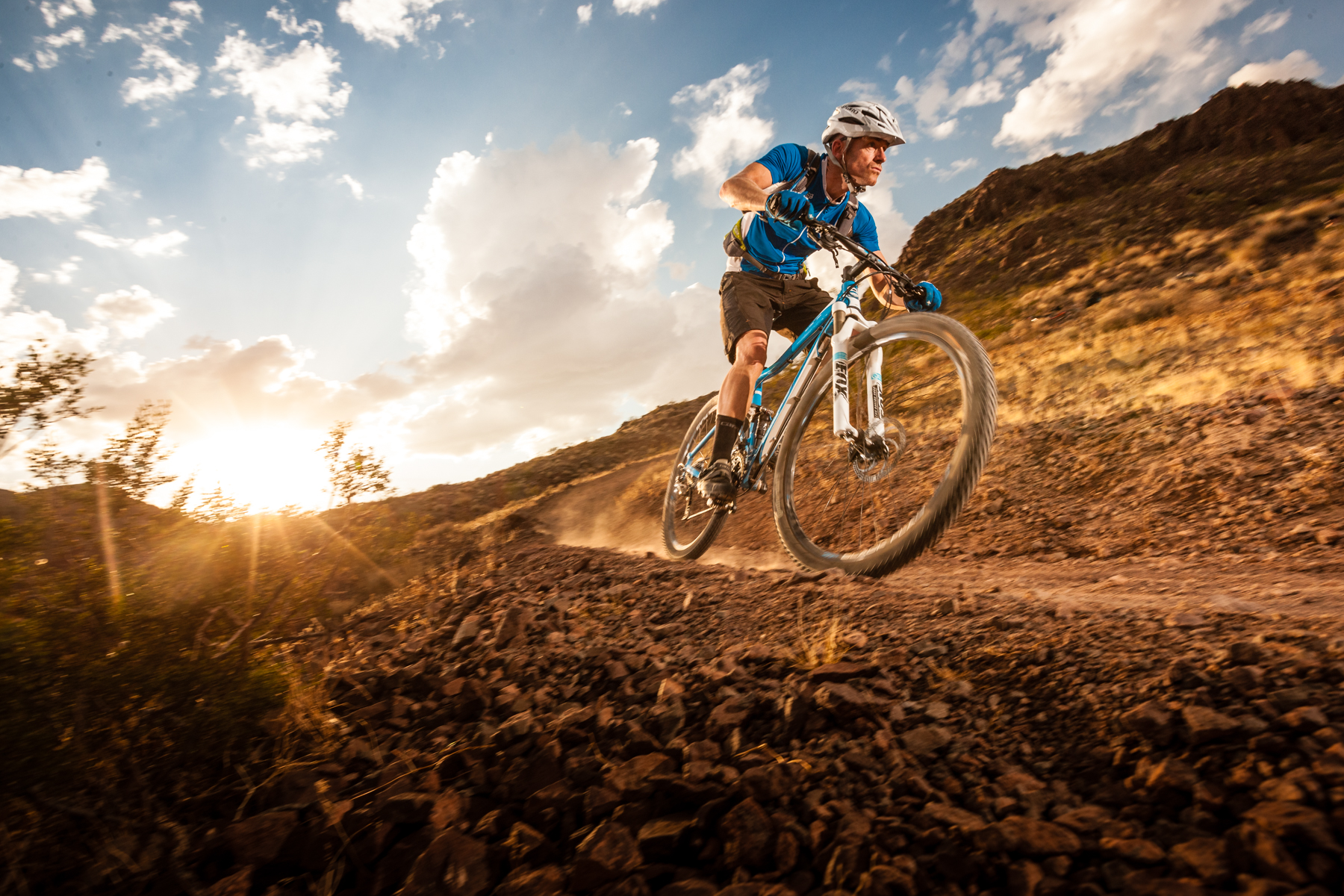
Guy Kesteven has been working on Bike Perfect since its launch in 2019. He started writing and testing for bike mags in 1996. Since then he’s written several million words about several thousand test bikes and a ridiculous amount of riding gear. He’s also penned a handful of bike-related books and he reviews MTBs over on YouTube.
Current rides: Cervelo ZFS-5, Specialized Chisel, custom Nicolai enduro tandem, Landescape/Swallow custom gravel tandem
Height: 180cm
Weight: 69kg
